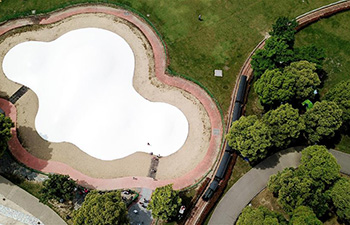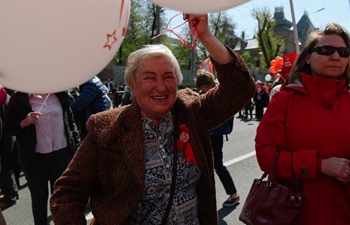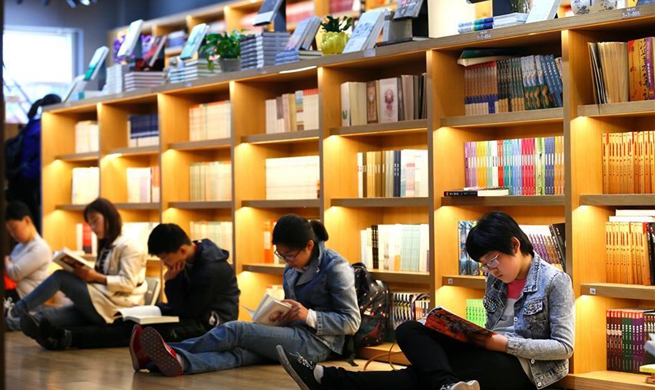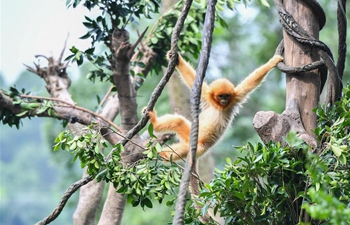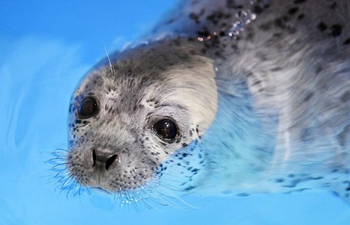CHICAGO, May 2 (Xinhua) -- Taste preferences for bitter or sweet beverages aren't based on variations in taste genes, but rather genes related to the psychoactive properties of these beverages according to a study of Northwestern Medicine.
In the study, beverages were categorized into a bitter-tasting group and a sweet-tasting group. Bitter included coffee, tea, grapefruit juice, beer, red wine and liquor, while sweet included sugar-sweetened beverages, artificially sweetened beverages and non-grapefruit juices.
The study was published in Human Molecular Genetics on Thursday.
Beverage intake was collected using 24-hour dietary recalls or questionnaires. The researchers counted the number of servings of these bitter and sweet beverages consumed by about 336,000 individuals in the UK Biobank.
Then they did a genome-wide association study of bitter beverage consumption and of sweet beverage consumption. Lastly, they looked to replicate the key findings in three U.S. cohorts.
The researchers found one variant in a gene, called FTO, linked to sugar-sweetened drinks. People who had a variant in the FTO gene, the same variant previously related to lower risk of obesity, surprisingly preferred sugar-sweetened beverages.
"It's counterintuitive," said Marilyn Cornelis, an assistant professor of preventive medicine at Northwestern University Feinberg School of Medicine.
"The genetics underlying our preferences are related to the psychoactive components of these drinks," said Cornelis. "People like the way coffee and alcohol make them feel. That's why they drink it. It's not the taste."
"This is the first genome-wide association study of beverage consumption based on taste perspective," said Victor Zhong, the study's first author and postdoctoral fellow in preventive medicine at Northwestern. "It's also the most comprehensive genome-wide association study of beverage consumption to date."
The study highlights important behavior-reward components to beverage choice and adds to our understanding of the link between genetics and beverage consumption, and the potential barriers to intervening in people's diets, Cornelis said.
Sugary beverages are linked to many disease and health conditions. Alcohol intake is related to more than 200 diseases and accounts for about 6 percent of deaths globally.
